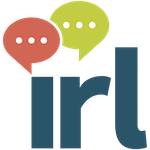So what's really in an IRL skills course?
When you enroll your autistic or neurodivergent loved one in our program, you’re getting full access to a multidisciplinary team that includes coaches with a broad range of experiences, cultural backgrounds, gender expressions and sexual orientations.
Many of us are also neurodivergent or are parents of neurodivergent youth, so we are familiar with the challenges faced by ND young people and their parents.
Full access doesn’t mean you can reach out to us 24/7, but it does mean that we’ve got your back.
Using our informed, collaborative lens, we’ll bend over backwards to help your teen or young adult find a source of friends and learn how to cultivate relationships and find support within that source. And we’re there for parents too! (You can enroll your teen today in our next social skills training.)
CONNECTION heals
For socially struggling individuals, connection can be the most healing intervention of all.
It starts small—often with just one friend who is safe to trust.
Someone who has your back, and who knows you’ve got theirs.
Someone you can experience safety and belonging with.
To get there, we need to know how to have two-way conversations, handle rejection, and self-advocate. We need to develop self-awareness and emotional self-regulation, which requires learning and practicing interoception and mindfulness practices.
And yet, even with these skills firmly in place, we may experience rejection, hurt feelings, misunderstandings, and conflict. Not to mention the inevitable anxiety that arises when you’re challenging entrenched beliefs and behaviors.
To help neurodivergent people navigate social life—with other neurodivergent individuals, as well as neurotypical people—we teach the tools to help mitigate that anxiety, as well as how to handle the very real prospect of rejection.
Research indicates there’s a 50-50 chance of being rejected when you try to start a conversation with someone or enter into a conversation — even if you’re the most socially adept person on the planet. That also means there’s a 50-50 chance of being accepted.
We’ll take those odds any day. We’ll help you to take them, too.
Okay, but HOW?
Our 16-Week Social Skills courses offer an immersive experience where autistic and other neurodivergent youth and young adults learn specific techniques to navigate different social situations. Every week you’ll receive coaching with our expert coaches, while also receiving peer support from a group who share your struggles and concerns (parents meet in a separate cohort than teens and young adults).
Each week focuses on a new topic or skills. Some examples are:
Entering and exiting conversations
Digital literacy (and safety)
Two-way conversations
Self-advocacy
Building appropriate friendships around shared interests
Morning and evening routines
Sex education, specifically consent
How/whether or not to talk to the police
How to deal with bullies
And so much more
That’s the curriculum for the kids.
Parents receive their own support in breakout rooms with other parents, where we coach you how to coach your child in a way that helps integrate the work they’re doing to shore up any social “deficits” and ease relationships and communication with just about anyone.
It’s a lot. Your family is worth it. And…
Sixteen weeks—four months—may not be a commitment you can make right now. That’s why we’ve launched a monthly workshop series.
Our Skills Academy workshops (originally called Skills Jams) are a two-and-a-half hour workshop that happens once a month, usually on the first Sunday of every month. Although we can’t pack nearly as much into a single afternoon workshop, participants tell us they find them to be valuable introductory courses, or a great refresher to review any skills gaps.
With all of our offerings, you’re getting a combined 40+ years of experience serving autistic, ADHD, and other neurodivergent youth. Our program has been proven to work and goes where other skills courses fear to go—all while taking a proactive lens to mental health and providing an environment of unconditional positive regard for your child.
Got questions? Visit our FAQ page for answers. If you don’t find what you’re looking for, drop us a line at hello@irlsocialskils.com and we’ll get back to you.

